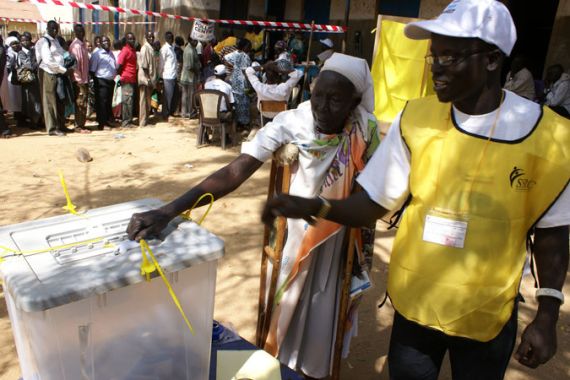By Mamer Abraham
Tuesday, September 12 marked five years since the revitalized agreement on the resolution of the conflict in South Sudan (R-ARCSS) was signed on September 12, 2018.
Through the span of five years with three significant extensions of the transitional period, the implementation does not fill the measure.
With only 15 months remaining until the end of the elections to be conducted, civil rights activists do not buy the idea of any further extension of the transitional period until December 2024.
Galdino Ochama Ojok, the secretary-general and executive director of the South Sudanese Network for Democracy and Elections (SSuNDE), said the remaining 15 months were very few for the completion of the prerequisites of the R-ARCSS.
“Now that we know the parties to the agreement if they want, they will extend it, but we will be opposed to it. We will say what guarantees are there. The people of South Sudan are going to suffer for these repeated and endless extensions,” Ojok stated.
He argued that any further extension after the end of the current roadmap would be a ploy by the parties to the agreement to stay in power.
“For these parties, extension might mean their own sitting in power; that’s why, out of desperation, we say if an election can be conducted within these 15 months, that will be better,” he noted.
“I think extension to them means prolonging their stay in power, and you know how sweet power is. They want to stay there; that’s what we know.”
Ojok reiterated that the old constituencies should be used, and the permanent constitution and census can be left for the new government to complete if they prove to be time-consuming.
“The least we can settle for is for the elections to be conducted. Let them pass the election act and then reconstitute the national election commission, and then let elections be conducted,” he continued.
“We had old constituencies that were there during the 2010 elections. The same constituencies can be used as geographical areas for representation. The census and new constitution can be done under the new system that is to come.”
Call to action
Edmund Yakani, the executive director of the Community Empowerment for Progress Organization (CEPO), yesterday called upon the politicians to demonstrate political will to launch a full-scale implementation of R-ARCSS.
Yakani decried the lack of trust and confidence in the presidency, estimating that less than 50 percent of the tasks enshrined in the peace agreement were implemented.
“Less than 50% of the R-ARCSS tasks were delivered for the last 5 years. The key and essential tasks of the R-ARCSS are still unfulfilled by the parties’ signatories to it,” Yakani echoed.
He put the task of expeditious implementation of the peace agreement in the hands of the three principals to the agreement to raise the expectations of the Reconstituted Joint Monitoring and Evaluation Commission (RJMEC) on the agreement in order for elections to occur.
Threshold
Charles Tai Gituai, the Interim Chairperson of RJMEC, gave a vote of thanks to the parties to the agreement for making the peace agreement hold in the last five years.
Gituai said progress had been made since the signing of the peace agreement in 2018, which included an agreement on the number of states and their boundaries.
“For instance, contention about the number of states and their boundaries was resolved; the R-ARCSS was incorporated into the Transitional Constitution of the Republic of South Sudan, 2011 (as amended),” Gituai said.
He continued that the executive and legislative arms of the government were formed, as were the legal, judicial, security, economic, and financial institutions.
“Legislation for two transitional justice mechanisms has been drafted, and the one that governs the making of the permanent constitution has been enacted,” he added.
Gituai noted that the ceasefire had been holding and that over half of the necessary unified forces had yet to be graduated.
Challenges
Gituai also mentioned challenges faced in the implementation of the revitalized peace agreement, which included the snail’s pace of the peace implementation, which he said caused the extension of the peace agreement three times.
According to him, there were hopes that the implementation of the roadmap would not lag, but a loophole has already emerged.
“As for the Roadmap, which was developed and agreed to by the Parties themselves, expectations were high that they would implement its provisions in letter and spirit. However, we have observed delays in its implementation, including some of the critical tasks,” he continued to explain the challenges.
The RJMEC boss also mentioned that the fact that the unified forces had not been deployed had far-reaching impacts on security and humanitarian crises.
He argued that economic reforms and transitional justice mechanisms were in place, but their implementation has been slim for eight months now.
Gituai urged the unity government to implement all the tasks and reconstitute the necessary bodies needed for the elections to be conducted.
The transitional period was extended in August 2022 for 24 months so that elections will take place in December 2024, and the transitional period ends in February 2025.
But preparations are minimal, as the opposition parties are reluctant to carry out rallies while waiting for full implementation of the peace agreement.




